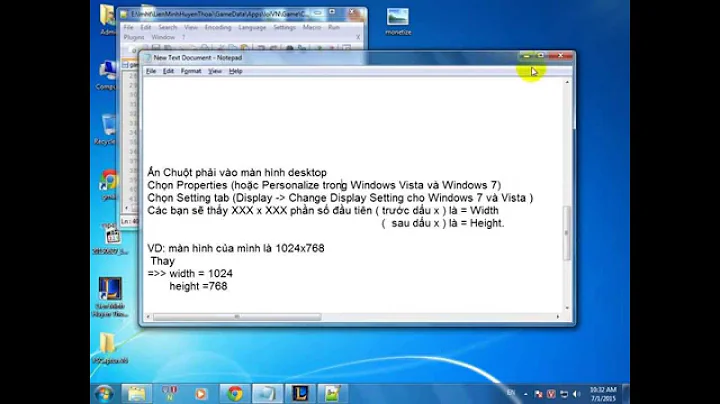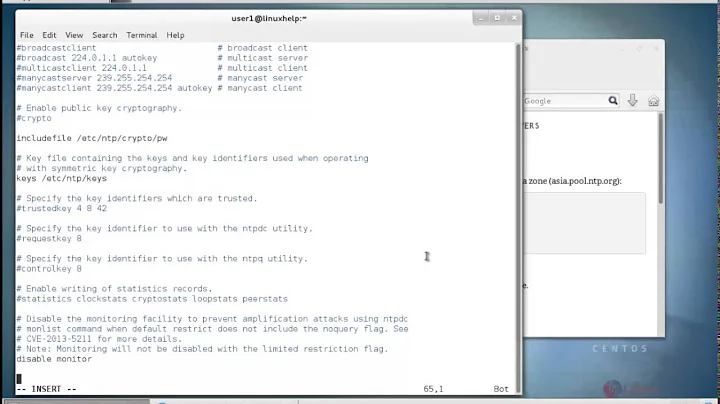NTP not supported
Solution 1
This worked for me on Ubuntu:
Install NTP:
apt install systemd-timesyncd
Activate NTP:
timedatectl set-ntp true
Solution 2
Your systemd-timesyncd service is masked. That means it can't be started, and can't be enabled. To reverse this, you need to run the following:
systemctl unmask systemd-timesyncd.service
Then you can enable and start the service:
systemctl enable systemd-timesyncd.service
systemctl start systemd-timesyncd.service
HOWEVER, it's pretty unlikely that your system got into this state on its own. Perhaps you followed some instructions to enable a more full-featured NTP server, like chronyd or ntpd? I recommend double-checking that they aren't installed before you proceed with the above method:
systemctl status chronyd.service
systemctl status ntp.service
If either of the above commands returns a good status, I recommend that you leave systemd-timesyncd disabled and masked.
Related videos on Youtube
mahmood
Updated on September 18, 2022Comments
-
 mahmood 8 months
mahmood 8 monthsIn Ubuntu 20.04, I see that I can not change the
set-ntpdue to the following error.# timedatectl set-ntp true Failed to set ntp: NTP not supportedAny way to fix that?
UPDATE:
It seems that
systemd-timesyncdfails with the start command.$ systemctl status systemd-timesyncd ● systemd-timesyncd.service Loaded: masked (Reason: Unit systemd-timesyncd.service is masked.) Active: inactive (dead) $ sudo systemctl start systemd-timesyncd Failed to start systemd-timesyncd.service: Unit systemd-timesyncd.service is masked.-
 Christian Ehrhardt over 2 yearsWhat this would usually enable/disable is systemd-timesyncd (works fine for me in a new and clean Focal VM btw). You could try checking what this reports and add it to the question
Christian Ehrhardt over 2 yearsWhat this would usually enable/disable is systemd-timesyncd (works fine for me in a new and clean Focal VM btw). You could try checking what this reports and add it to the questionsystemctl status systemd-timesyncd -
 mahmood over 2 years@ChristianEhrhardt: Please see the updated post.
mahmood over 2 years@ChristianEhrhardt: Please see the updated post. -
 x-yuri over 1 yearIn case you end up here with the issue (the message) on Amazon Linux.
x-yuri over 1 yearIn case you end up here with the issue (the message) on Amazon Linux.timesyncdis not available there. Usechronyor something.
-
-
 Paul Gear over 1 yearThe OP indicates that systemd-timesyncd is already installed, but configured not to start. This will not do anything useful to solve the problem.
Paul Gear over 1 yearThe OP indicates that systemd-timesyncd is already installed, but configured not to start. This will not do anything useful to solve the problem. -
 MariusSiuram over 1 year@PaulGear My system didn't have systemd-timesyncd but behaved just as OP indicated. OP has not stated that it is already installed. As it stands, this answer has solved my issue. I fail to understand why
MariusSiuram over 1 year@PaulGear My system didn't have systemd-timesyncd but behaved just as OP indicated. OP has not stated that it is already installed. As it stands, this answer has solved my issue. I fail to understand whysystemd-timesyncdis recognized as masked when the package is not installed. -
 MariusSiuram over 1 year... and let me say thanks and comment that a Raspberry Pi installed with Raspbian 11 bullseye solved its issues by following your steps :) Just in case somebody in the future ends up here with Raspberry Pi issues
MariusSiuram over 1 year... and let me say thanks and comment that a Raspberry Pi installed with Raspbian 11 bullseye solved its issues by following your steps :) Just in case somebody in the future ends up here with Raspberry Pi issues -
 Admin about 1 yearthis just helped us as well, I think this one should be the accepted answer here
Admin about 1 yearthis just helped us as well, I think this one should be the accepted answer here -
 Admin 12 monthsThis was useful, but you may want to move your However clause, containing the advice to check before changing, up in front of your instructions to change.
Admin 12 monthsThis was useful, but you may want to move your However clause, containing the advice to check before changing, up in front of your instructions to change.




